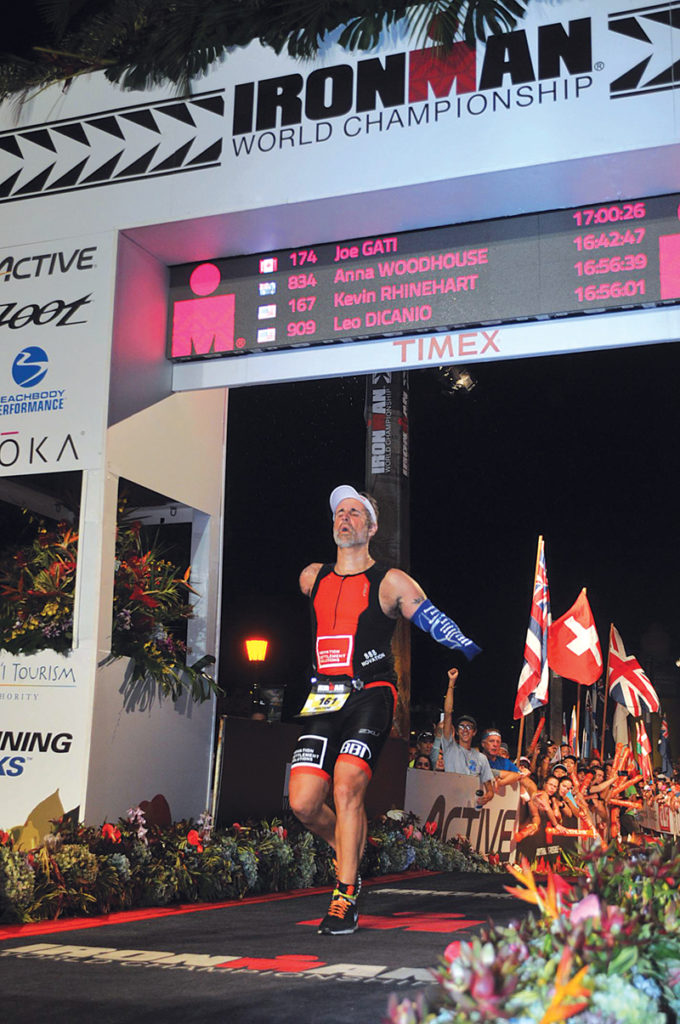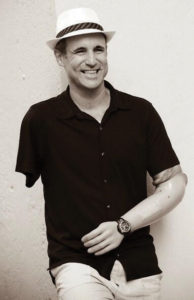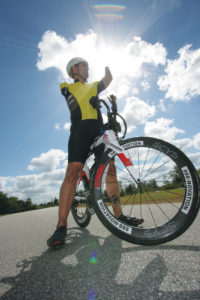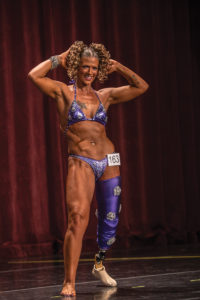By Erin Deegan
Lunch Meat, Marathons, and Adventures in Between
“YOU ARE SO INSPIRING!” a woman exclaimed as I browsed lunch meat at the grocery store. I turned to find a woman staring at me and I could tell a conversation was about to occur. I felt a little bit awkward since I did not feel as if grocery shopping was an inspiring activity, but it wasn’t the first and surely wouldn’t be the last time someone stopped me in public for doing a basic everyday task.
Being an amputee isn’t inherently inspirational, but many people seem baffled to find us out in the wild conducting normal tasks like grocery shopping or walking down the street. There’s nothing wrong with it, in my opinion; in fact, many of us appreciate positive comments from strangers. I think it comes from a place of innocence and curiosity; there simply aren’t many of us around.
What does it mean to be inspiring? If we look at dictionary definitions, “to inspire” is to fill someone with the urge or ability to do or feel something. Some amputees strive to be considered inspiring to the masses, while others would rather blend in. Some amputees enjoy the random interactions with strangers, while others would rather go about their day without being bothered. As with many things, there is also a middle ground.

Hector Picard, a motivational speaker and triathlete, lost both his arms 27 years ago. He has been stopped by strangers on many occasions, often while grocery shopping or doing other menial tasks. He has also been approached while doing things others may find impossible. His most memorable interaction was during a 13.1-mile race when an able-bodied athlete running the opposite direction approached him in tears and told him he inspired him to finish the race. Picard says he doesn’t mind being called an inspiration. He usually directs those who approach him to his website (www.dontstopliving.org). “I make a living out of being considered an inspiration, so it doesn’t bother me,” he says. “In addition, it’s been 27 years since my accident, so the attention doesn’t bother me.”
Picard does admit that it feels a little bit awkward when an able-bodied stranger approaches him while he’s doing common tasks, but if another amputee or someone who knows an amputee stops him, he feels good about it.
“I do feel my limb loss has a purpose. I always say that I want to be a role model for others, especially children with disabilities. I like to be noticed while doing things that others [able-bodied] perceive would be impossible by someone like me.”
Jenny Pollreis, an operations supervisor at UPS and a left below-knee amputee since 2003, says if she truly inspires someone then it is a compliment to be called an inspiration. Although there are limits. “I find it annoying when people confuse the word inspired with admire,” she says. “When someone is inspired, they look to better themselves. When they admire, they are just thinking, ‘Oh, good for you,’ but don’t care to use that to better themselves.”

Like Picard and me, Pollreis has also been approached by strangers in multiple situations. “Some strangers have heard of me or my story and have approached me to tell me that they bettered themselves in some way because of my story. I am flattered by those [encounters] and feel all the struggles I have gone through in 16 years of being an amputee [are], at that moment, worth it to help someone.”
It is understandable why able-bodied strangers may approach amputees to comment about finding them inspiring. The only exposure many able-bodied individuals have with amputees is seeing Paralympians on television at an event that only comes around once every two years. The media doesn’t portray amputees often, though there does seem to be a recent trend in showing a variety of abilities and body types on television, in movies, and in advertising. For example, Target recently selected an amputee model to represent its swimsuit line, and Tommy Hilfiger has released an adaptive clothing line and uses models with disabilities to showcase the clothing. There are even amputee characters in cartoons, such as DreamWorks’ How to Train Your Dragon and Disney’s DuckTales.
“I believe that amputees are being represented in a positive sense in the media,” Picard says. “It seems that in the last couple of years I’ve seen more stories in the news about amputees doing incredible things, as well as more amputees in commercials living normal lives.”

But is there a line to be drawn? Some question whether the media is truly trying to be inclusive or if it is responsible for “inspiration porn.” “Inspiration porn” could be defined as when able-bodied individuals use images or videos of individuals with disabilities to shame other able-bodied individuals into doing things. Forced inspiration, perhaps. For example, a video online could show an amputee running a marathon, and the takeaway story isn’t that the amputee overcame great adversity to get to where he or she is but instead is used to shame able-bodied individuals for not running marathons. This imagery may lead to feelings of inadequacy for both able-bodied individuals and amputees alike.
“Most active amputees are portrayed as a hero of some type, no matter their background story. They get their heroism for having a visible disability,” says Pollreis. “With most of us, we really do have a story to tell, [but] the story is overlooked as the media will get more hype out of the physical appearance.”
Pollreis is familiar with the inadequate feelings many amputees face. When researching on the internet prior to her amputation, “I found all these superhuman amputees’ success stories but nothing in between. So, I expected to have my leg cut off and a couple months later be sprinting like nothing ever happened. I was never told of the difficulty of recovery, so I assumed I would never be a superhuman. I was depressed and felt defeated.”
Pollreis’ feelings of inadequacy changed with time and rehabilitation. “I realized we are all like little babies. Learning to walk, crawl, even pull up your pants as an amputee is different; so, I thought of it that way. Learning how to waddle and toddle again led to trying to run again.”

Picard says, “I could look at able-bodied athletes and let myself feel inadequate, but I refuse to do so. I use their performances to help fuel me to work harder to reach my goals.” He says he competes in triathlons and other endurance events because he enjoys doing them. “It’s what makes me happy,” he says. His advice to those who may be feeling inadequate is simple: “My advice to others is to find that thing that makes them happy.”
Regarding the media’s use of imagery of individuals with disabilities as a source of inspiration, whether someone considers it “inspiration porn” or not, Picard and Pollreis had similar requirements.
“I don’t think there is anything wrong with using a disabled person’s picture for inspiration as long as the disabled person is made aware that the picture is being shared,” Picard says. “An effort should be made to know the story of the disabled person and the qualities that made him or her an inspiration other than the fact that they are disabled.”
Pollreis also says she does not mind amputees or those with other disabilities being used to inspire others. “Maybe that was our purpose in life and why we had been born with or ended up the way we are—an amputee. However, I do wish the able-bodied would be more inspired by our actual stories other than our outside visual disability.”
As with many topics, there is no right or wrong answer to how one should feel about being called an inspiration. It may feel a bit awkward when someone stops you for doing something basic, like buying groceries, but we as amputees typically understand why people feel the urge to comment.

“To me, a true inspiration practices what they preach, fights their own daily battles as best they can, helps others expecting no gratitude in return, shares their moments of good and bad not for attention but to let friends, followers, and whoever wants to listen know that they are not alone in their daily battles,” says Pollreis. “Being yourself is a true inspiration in a world where everyone expects sugarcoating.”
INTERESTED IN LEARNING MORE?
CHECK OUT THESE YOUTUBE VIDEOS.
Amputee Stereotypes—Inspirational, Overcoming Adversity, Inspiration “Porn”
www.youtube.com/watch?v=mGt3Gy2VrSA
Inspiration Porn or Inspiration as a Mission?
www.youtube.com/watch?v=2FxK0PXVQMg
Changing a Bicycle Flat Tire Without Hands—
Double Arm Amputee / Hector Picard
www.youtube.com/watch?v=PWCDEAYn8rQ
Jenny Pollreis’ YouTube channel
www.youtube.com/channel/UC7USdGuNQkMhlhPX2dJVetA/videos
Hector Picard’s YouTube channel



